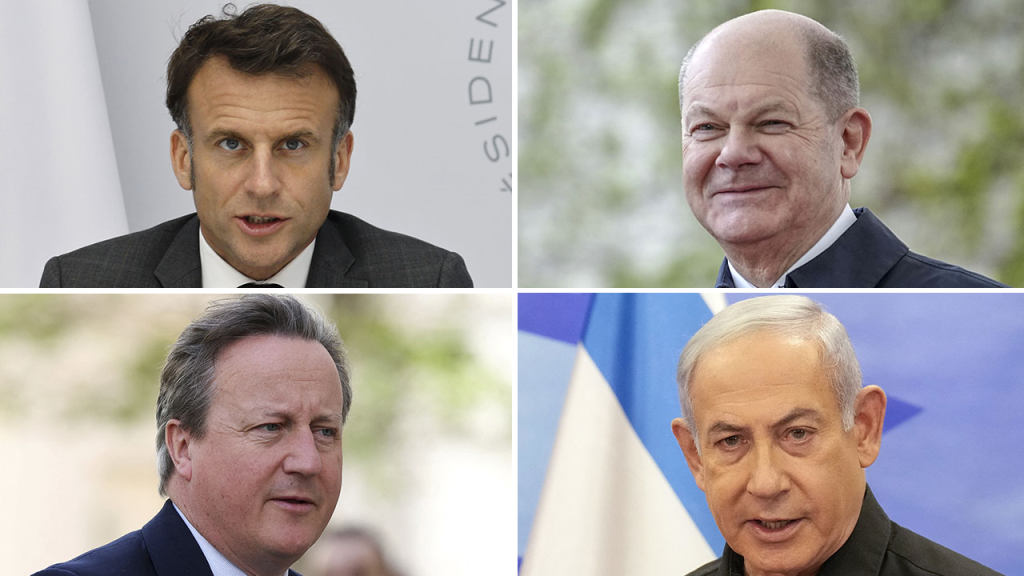World leaders, including French President Emmanuel Macron and German Chancellor Olaf Scholz, are calling on Israel to avoid escalating tensions with Iran. Macron condemned Iran’s attack on Israel and stated that France will work to isolate Iran, increase sanctions, and find a path to peace in the region. Germany also urged Israel to contribute to de-escalation and called on Iran to stop its aggression. Both France and Germany have advised their citizens to depart Iran and cancel flights due to the increased risk of military escalation.
Iran launched hundreds of drones and missiles at Israel in response to a deadly strike on the Iranian consulate in Syria that left 12 people dead, including a senior commander in Iran’s Revolutionary Guards Corps. Israel did not claim responsibility for the strike. An Israeli military spokesman reported that 99% of Iran’s drones and missiles were intercepted. British Foreign Secretary David Cameron stated that Israel is justified in considering a response to the attack but urged them to be smart and thoughtful in their actions. He expressed hope that there would not be a retaliatory response.
House Speaker Mike Johnson is expected to push for a spending package that will provide more wartime aid for Israel in response to the recent events. Bills that would increase sanctions on Iran and condemn the Islamic Republic for the attack are also expected to be brought forward this week. The international community is closely monitoring the situation and working to prevent further escalation in the region. The United States and other countries are showing support for Israel while also urging caution and strategic thinking in responding to Iran’s aggression.
Macron and Scholz’s calls for de-escalation are part of broader efforts to address the increasing tensions between Israel and Iran. The international community is concerned about the potential for further conflict and the impact it could have on the region. By urging Israel to show restraint and responding with diplomatic measures, leaders hope to prevent a further escalation of violence. The situation remains fluid, and the actions taken by Israel, Iran, and other involved parties will continue to shape the outcome of the situation.
The attack on Israel by Iran has raised concerns about the stability of the region and the potential for a wider conflict. Israel’s interception of the majority of Iran’s drones and missiles is seen as a demonstration of its military capabilities. However, there is also a recognition of the need for strategic thinking and diplomacy to prevent a cycle of retaliation and escalation. The international community’s efforts to provide support and guidance to Israel while also calling on Iran to stop its aggression are crucial in managing the situation and working towards a peaceful resolution.
As the situation continues to unfold, world leaders are working to address the root causes of the conflict and find ways to de-escalate tensions in the Middle East. By providing aid to Israel and increasing sanctions on Iran, countries are sending a message of support for Israel while also holding Iran accountable for its actions. Diplomatic efforts will be key in finding a path to peace and stability in the region. The international community’s response to the recent events in Israel and Iran highlights the importance of cooperation and coordination in addressing conflicts and promoting peace.


